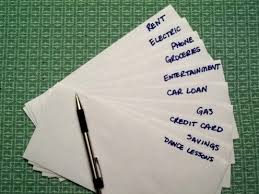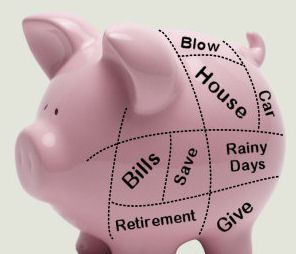If you have been working at living within your budget but struggle at times, here is an idea that you may consider implementing: the Envelope System.
Using the Envelope System can be a great support to ensure that the budget is being followed. This system, as it's name implies, uses envelopes labeled with different budget items that can be paid in cash. Basic categories may include groceries, eating out, clothing, and miscellaneous expenses.

Each time you get paid, cash out the amount of money that you would need to fund each envelope. With the cash in hand, you then divide it into the envelopes named for the different categories. Once the cash is gone, then you know it is time to stop spending.
If you find yourself constantly needing to adjust a category throughout the month – or robbing other envelopes to make purchases, then you may need to rethink the allotted amount for that category. This is particularly true with the grocery budget. It is often wise to over-fund this category.Be careful not to rob the other envelopes when one envelope is empty. A common occurrence is to rob, say, the clothing envelope, after the grocery money is spent. That's fine if you do – things happen! But keep in mind, no new clothes until the clothing envelope is funded again!
This method also works well for things that are not normal monthly expenses. A Christmas envelope that is funded each month can take a lot of stress out of the holiday season. A vacation envelope can ensure that the family trip actually happens this year! These may actually be best done with separate savings accounts at the bank.
Other random envelope categories may include birthdays, house repairs, concerts or entertainment, sporting events, garden or yard care expenses, car repairs, or any hobbies you may have. They may even include saving for special goals, perhaps a new car, jewelry, or season tickets to your favorite sports team!
Another tip on using the Envelope System, is that you can write a date and amount on the envelope each time you remove money; this will help you keep track of the money spent. This is helpful because cash has a way of disappearing – not necessarily by the common thief – by simply spending too much too fast.
This is an easy way to put a check on your spending habits as well as a way to ensure that your goals and dreams come to life! As with budgeting this will take discipline to implement.




